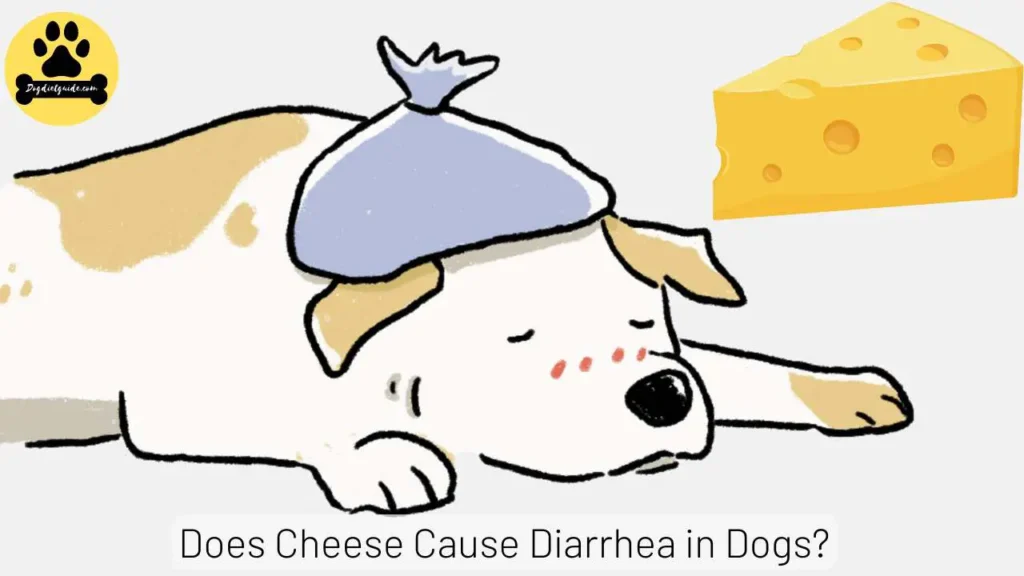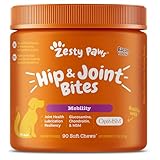As pet owners, we strive to provide the best care for our furry friends. However, amidst the countless treats and snacks available, concerns about their health often arise. One prevalent question among dog owners is does cheese cause diarrhea in dogs?
Does Cheese Cause Diarrhea in Dogs?
Yes, consuming an excessive amount of cheese can cause diarrhea in dogs, especially if they are lactose intolerant. According to ASPCA, canines do not possess lactase enzymes for breaking down lactose in dairy products. Therefore, cheese and other dairy products can cause dogs’ diarrhea and other gastrointestinal issues.
Understanding Canine Digestion
Before we address the cheese-diarrhea connection, we must grasp the basics of canine digestion.
Dogs possess omnivorous tendencies, which entails that their digestive systems have evolved to efficiently process a diverse range of foods, encompassing animal and plant-derived sources.
While dogs have the necessary enzymes to break down lactose during their puppyhood, many lose this ability as they mature.
This inability to digest lactose efficiently leads to a range of digestive issues, including diarrhea, if they consume dairy products containing lactose.
Like humans, dogs’ tolerance to dairy products varies. Some pets handle cheese well, while others experience discomfort with minimal consumption.
Does Cheese Cause Diarrhea in Dogs?

Feeding cheese to dogs is not a safe practice, as it poses potential health risks such as upset stomach and diarrhea. Lactose-intolerant dogs lack the enzymes necessary to digest lactose effectively.
Lactose intolerance is a common condition in which dogs lack the necessary enzyme, lactase, to properly digest lactose, which is the sugar in milk and dairy products like cheese.
When lactose-intolerant dogs consume dairy products, including cheese, it can lead to gastrointestinal upset, including diarrhea, gas, and stomach discomfort.
Not all dogs are lactose intolerant, though. Some dogs may tolerate small amounts of cheese without any issues. If you want to give your dog cheese as a treat, it’s important to do so in moderation and monitor their reaction.
If you observe any indications of digestive distress, such as diarrhea, after giving your furry friend cheese, you should refrain from providing them with dairy products.
The Lactose Conundrum
Lactose is a naturally occurring sugar commonly found in milk and dairy products. To properly digest lactose, dogs require an enzyme called lactase.
As puppies, dogs produce ample lactase to digest their mother’s milk. However, lactase production often diminishes as they transition to solid foods and age.
This decrease can lead to difficulty digesting lactose, potentially resulting in gastrointestinal discomfort and diarrhea.
Related Post: Can Dogs Have Angel Food Cake?
Debunking The Cheese-Diarrhea Myth
While the lactose content in cheese is significantly lower than in milk, it’s important to consider the type and amount of consumed cheese.
Hard and aged cheeses, such as cheddar or Parmesan, and cottage cheese contain minimal lactose due to fermentation.
As a result, they are generally better tolerated by dogs with lactose sensitivity.
Moderation is key here; offering small amounts of these cheeses as occasional treats is less likely to trigger digestive upset.
Is Cheese Bad For Dogs With Diarrhea?

Yes, feeding cheese to dogs with diarrhea is generally not recommended.
The lactose content in cheese can lead to stomach upset in canines and exacerbate the condition, potentially leading to pronounced dehydration.
Safe Variants Of Cheese For Dogs
-
Low-Fat Cottage Cheese
-
Soft Goat Cheese
-
Plain White Cheddar
-
String Cheese
Best Practices For Cheese Treats
-
Option for low-lactose or lactose-free cheeses to minimize the risk of digestive issues in your furry friend. As mentioned earlier, hard and aged cheeses are often better tolerated.
-
While canines may enjoy cheese taste, portion control is essential. Small, bite-sized portions can serve occasional rewards without overwhelming their digestive systems.
-
Be vigilant for any indications of gastrointestinal discomfort, including symptoms like diarrhea, vomiting, or excessive gas.
Related Post: Can Dogs Eat Freeze Dried Duck Heads?
FAQs
Can all dogs eat cheese without experiencing diarrhea?
While some dogs may tolerate cheese well, others may be more susceptible to digestive disturbances due to lactose intolerance or other dietary sensitivities.
How much cheese is safe for dogs to consume?
Moderation is vital when offering cheese to dogs. Small, occasional servings as a treat or training reward are generally well-tolerated, but excessive consumption can lead to digestive upset.
Are certain cheese varieties safer for dogs than others?
Opting for low-lactose cheese varieties like aged cheddar or Swiss can reduce the risk of gastrointestinal discomfort in lactose-sensitive dogs.
Should cheese be avoided entirely if a dog experiences diarrhea?
If diarrhea occurs after cheese consumption, temporarily removing cheese from the dog’s diet and reintroducing it in small quantities after digestive symptoms subside may help identify any underlying sensitivities.
What are the signs of lactose intolerance in dogs?
Symptoms of lactose intolerance in dogs can manifest as diarrhea, vomiting, excessive gas, and abdominal discomfort following the ingestion of dairy products.
When should I seek veterinary care for my dog’s diarrhea?
If your dog experiences diarrhea persistently for more than 24-48 hours, accompanied by additional concerning signs like lethargy or loss of appetite, or if your pet appears visibly distressed or in discomfort, seeking veterinary evaluation is strongly recommended.
Final Thoughts: Does Cheese Cause Diarrhea in Dogs?
In conclusion, the relationship between dogs and cheese is complex. Although cheese generally contains lower lactose levels than milk, the influence of dogs’ sensitivity and the specific type of cheese ingested holds considerable importance in determining how it affects their digestive system.
Hard and aged cheeses are generally safer options for occasional treats, given in moderation.
Resources:
https://www.hillspet.com/dog-care/nutrition-feeding/can-dogs-eat-cheese?lightboxfired=true
https://www.akc.org/expert-advice/nutrition/can-dogs-eat-cheese/










![Can Dogs Eat Blood? 7 Side Effects [Expert Opinion]](https://petskor.com/wp-content/uploads/2022/04/Webp.net-resizeimage-12.jpg)
